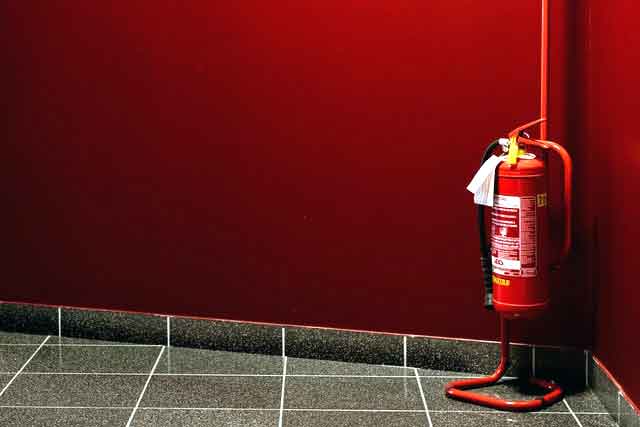Fire Safety in UK Residential Properties: Regulations, Responsibilities & Prevention
Fire safety in residential properties is of the utmost importance in the United Kingdom. The government has implemented strict regulations to ensure that homes are safe from the potential dangers of fire.
In this article, we will discuss the fire safety regulations that apply to residential properties in the UK, including the responsibilities of landlords and tenants, the importance of regular fire safety checks, and the steps that can be taken to prevent fires from occurring.
The main legislation governing fire safety in residential properties in the UK is the Regulatory Reform (Fire Safety) Order 2005 (RRO). This order applies to all non-domestic properties, including residential properties, and requires the responsible person, which is typically the landlord or property owner, to conduct a fire risk assessment and implement measures to reduce the risk of fire.
The responsible person is also responsible for ensuring that the fire safety measures in place are maintained and that all occupants are aware of the fire safety procedures.
Landlords have several responsibilities when it comes to fire safety. They are required to provide smoke alarms on each floor of the property and to ensure that they are in working order at the start of each tenancy.
Landlords are also responsible for ensuring that escape routes are clearly marked and that fire doors are properly maintained. Additionally, they must ensure that fire extinguishers and fire blankets are provided, if appropriate, and that all electrical appliances are safe to use.
Need A Free Estimate?
- Fully qualified RICS professional surveyor
- Affordable, fast and thorough surveys
- Clear, precise and easy to understand report
Tenants also have a role to play in maintaining fire safety in a property. They are responsible for notifying the landlord or property owner if they notice any fire hazards or if the smoke alarms are not working. They must also ensure that they do not block escape routes and that they do not tamper with fire safety equipment.
Regular fire safety checks are essential in ensuring that homes remain safe from the potential dangers of fire. This includes regular inspections of smoke alarms and fire extinguishers, as well as checks on the condition of fire doors and escape routes.
Landlords must also ensure that their fire risk assessment is reviewed regularly to take into account any changes to the property or its use.
Preventing fires from occurring in the first place is the best way to ensure fire safety in residential properties. This includes ensuring that all electrical appliances are in good working order and that they are not overloaded.
It’s also important to keep flammable items, such as curtains and paper, away from heat sources, and to keep an eye on cooking to prevent kitchen fires. Another consideration should be given to the non smoke policy inside the house.
Another important aspect of fire safety is having a fire evacuation plan in place. Every household should have a plan for what to do in case of a fire, and everyone should know how to get out quickly and safely. It’s also important to practice the plan regularly to ensure that everyone is prepared in case of an emergency.
Fire safety is a top priority for all homeowners and tenants in the UK. The government has put in place regulations to make sure that your home is safe from the dangers of fire. It’s crucial for landlords, tenants, and building owners to understand their responsibilities, the importance of regular fire safety checks, and the measures that can be taken to prevent fires from happening.
By taking these steps, we can work together to keep our families and homes safe from harm. Remember, an ounce of prevention is worth a pound of cure, so don’t wait until it’s too late to take action and protect your loved ones.
Written by Danil P.
18th Aug 2021 (Last updated on 12th Dec 2022)
5 minute read





